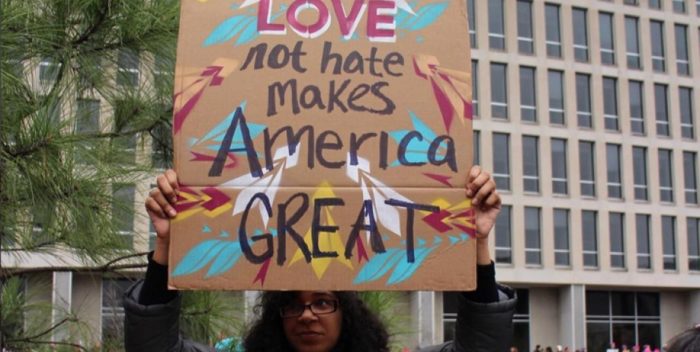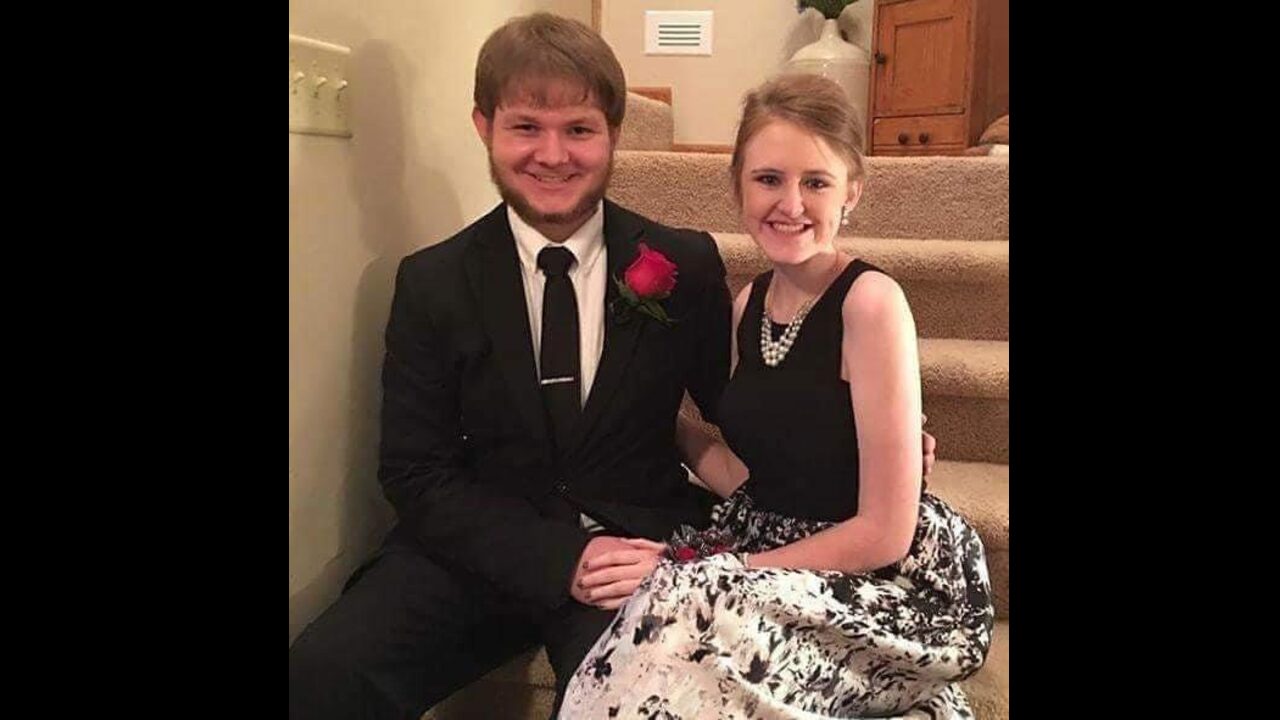Marching Isn’t the Only Way to Make Your Voice Heard
A protester holds a sign in the Women’s March in Washington, D.C. Photo from Public Radio International.
by April Bayer
On Jan. 21, millions of protesters participated in Women’s Marches around the world, an event that started with an organized march in Washington, D.C. and spread across the country and to other nations.
Many elements of the protest sparked controversy, from the pink hats depicting female anatomy to singer Madonna’s statement that she had “thought an awful lot about blowing up the White House.”
Reading story after story about the march left me with many questions. Where do I stand on this as a woman? And, more importantly, where do I stand on this as a Christian?
The issues surrounding this matter are too complex to be fully addressed in a few hundred words, so I will address three main aspects of the protest.
I was disappointed by the way that some of the people who claimed to represent my entire gender chose to protest. According to USA Today, some pro-life groups who expressed interest in marching were not welcomed, and one pro-life advocate even reported being spit on by another participant. It appears that some who participated in the Women’s March were not inclusive or loving toward unborn women or women who disagreed with their views.
It was also difficult for me to determine exactly what the goal of the Women’s March was. Some signs expressed disdain for the recently elected president, others pushed for pro-abortion and LGBTQ rights, and still others proclaimed love and equality. Perhaps their message would have been clearer if they focused more on one or two specific issues.
However, I do feel that there is value in one aspect of what the Women’s March hoped to accomplish—women advocating for one another. History clearly demonstrates that the advocacy of women can lead to positive change.
As a woman in 2017, I can vote, own property, attend classes at a university and enter a career in any field I choose. Less than a hundred years ago, these things were either illegal or much more difficult for women to achieve. I have these rights and privileges as a gift from God and because of the efforts of the women who came before me. Though much progress has been made in the last century, there is still work to be done.
Women in the United States still face issues of human trafficking, rape, sexual assault and unpaid family leave for new mothers. A 2012 statistic from the International Labor Union indicates that nearly 21 million people worldwide are victims of human trafficking, many of them female. It is also estimated that over 320,000 people are victims of rape or sexual assault in the United States each year, and approximately 90 percent of adult victims are female. Additionally, the United States was the only one of 41 developed nations surveyed by the Organization for Economic Cooperation and Development that did not federally mandate any paid family leave for new mothers.
This is only scratching the surface as women around the world face even greater struggles, including a lack of access to education and career opportunities, inadequate healthcare and countless forms of violence.
These problems are not perpetuated solely by men, solely by women, or by the actions and beliefs of any one political party. Rather, they are rooted in sin. We are all sinful, and we all play a role in the problems this world faces. That is why, when our voices call for change, we should not be focused on assigning blame, but on making things better for those who are oppressed.
Proverbs 31:8-9 tells us, “Speak up for those who cannot speak for themselves, for the rights of all who are destitute. Speak up and judge fairly; defend the rights of the poor and needy.”
I believe that this was the intention of some of the women who marched, as evidenced by a conversation I had with Madeline Warrick, a sophomore at Nebraska Wesleyan University who participated in the Women’s March in Washington, D.C.
“I felt empowered, safe and almost peaceful in a way. It was nice to be in an environment with no judgment, an abundance of support and the bravery that came from being surrounded by hundreds of thousands of people all with a common goal,” Warrick said.
Motivated by a desire to speak up for women facing cultural or systemic discrimination, assault, trafficking or any other form of victimization, I can understand why many young Christian women may have participated in the march. I can also see why other women in the same position may not have been supportive of the march, as it adopted positions regarding abortion and other controversial issues against their beliefs or because they did not view the protest as the most effective way to advocate.
Ultimately, I would encourage those on both sides of the issue to be open to conversation, to listen rather than make assumptions. I would also encourage my fellow women and men to continue speaking out for the oppressed and advocating for issues about which they feel passionate.
Marching down a crowded street is not the only way for your voice to be heard. Volunteer at a shelter, make a donation, raise awareness and, perhaps most importantly, pray.










